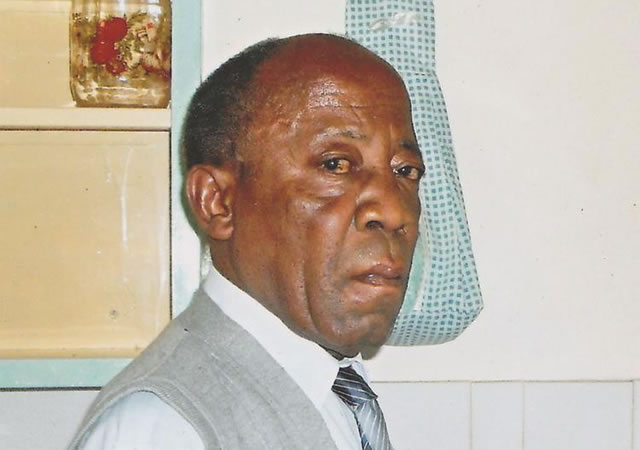Farewell patriot Herald Chirenda

Saul Gwakuba Ndlovu
THE death of one of the senior officers of the Patriotic Front – Zapu’s Zimbabwe People’s Revolutionary Army’s (Zipra’s) high command, Cde Elliot Masengo, is a very sad loss to every patriotic Zimbabwean who regards the armed liberation struggle as an important national stage in the history of Zimbabwe.
Elliot Masengo was his non-de-guerre. His actual name was Herald Chirenda. He died on Wednesday at the age of 69 at the United Bulawayo Hospitals after a long illness.
He received his secondary education at Goromonzi in the very early years of the 1960s. At that time, Southern Rhodesia (now Zimbabwe) was one of the three territories of the Federation of Rhodesia and Nyasaland. The other countries were Northern Rhodesia (now Zambia) and Nyasaland (now Malawi).
At the time he was at Goromonzi, the vast majority of the black people of Zimbabwe supported the National Democratic Party (NDP) whose Beatrice Cottages offices in Salisbury (now Harare) were manned by the late Stephen Vuma and Malachi Madimutsa. Chirenda was deeply impressed by those two young people’s commitment to the liberation of Zimbabwe.
He would recall years later how their political opinion differed from that of his uncle, Jasper Zengeza Savanhu, who was a staunch supporter of the white-led United Federal Party (UFP) of Roy Wellensky, the Prime Minister of the Federation.
He would not be persuaded to support the UFP, his uncle’s party, whose official policy was “partnership” between the black and the white people, the black people being regarded and treated as inferior to the whites.
Explaining the policy at a rally in the then Northern Rhodesia at the height of the Federation, Wellensky was reported to have said that it was similar to the partnership between a horse and its rider.
Chirenda could have been induced to go his uncle’s political way when he (his uncle) was appointed press attaché by Wellensky to the London diplomatic office of the federation.
He, however, chose to go to the newly independent Congo (Kinshasa) as a soccer player for an Elizabethville-based club. Elizabethville is now called Lumbubashi.
That was about 1963. About a year later he left Lumbubashi for the Copperbelt, just across the Northern Rhodesia/Congo border.
Zapu field organisers were busy recruiting military personnel on the Copperbelt at that time. Chirenda volunteered to become one of those to go abroad for military training, joining such patriots as Alfred Nikita Mangena and Tapson “Terror” Munyanyi Sibanda.
His group was trained in Algeria. On the group’s return, Chirenda was then using his non-de-guerre, Elliot Masengo and no longer Herald Chirenda, a name he resumed after Zimbabwe’s attainment of independence.
As one of the senior Zipra commanders, Chirinda spent most of his time in the front and not in Lusaka. He was a fighting military officer.
During the war he held positions such as deputy personnel chief during the armed struggle. He was one of the first Zipra military trainers at Morogoro Camp, which was opened in 1968.
On Zipra’s return home in 1980, he was seconded to the Zimbabwe National Army and was given the rank of colonel. He was later seconded to the national diplomatic corps as a military attaché. He served in the Zimbabwe National Army until he retired in 1995.
Chirenda was in the Zipra high command together with the likes of the late General Lookout Masuku and Rtd Brigadier General Ambrose Mutinhiri.
Elliot Masengo was a true patriot without any traces of regionalism or tribalism. May his soul rest in peace.
Saul Gwakuba Ndlovu is a war veteran and Bulawayo-based retired journalist. He can be contacted through email sgwakuba@gmail.com













Comments